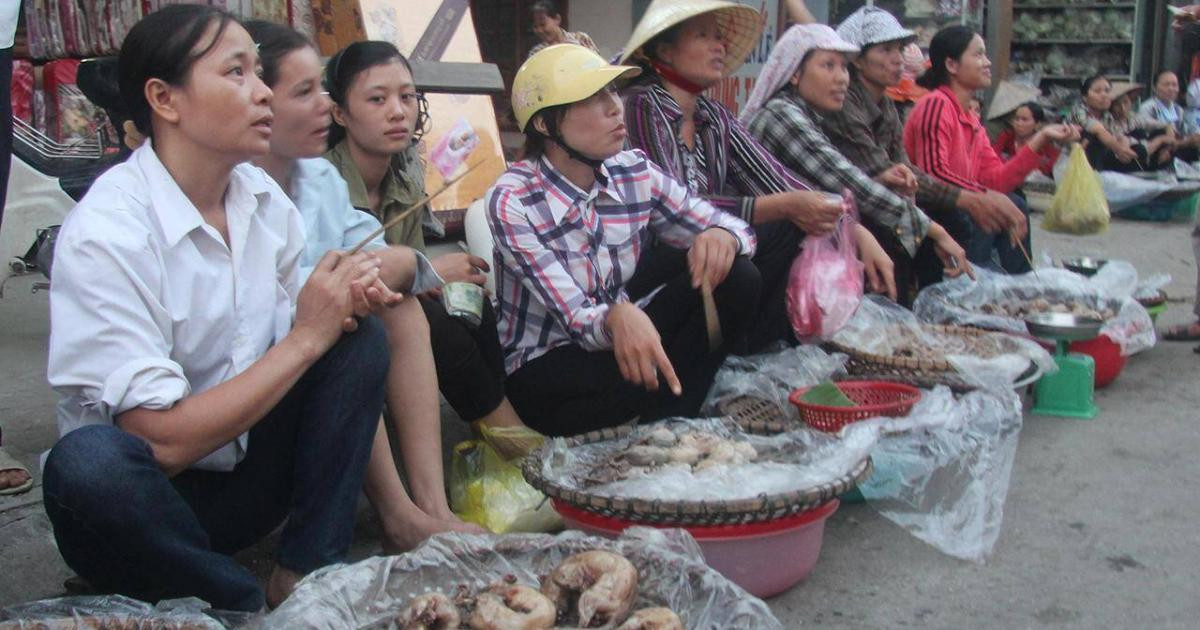Visitors to Dak Doa, the Central Highlands province of Gia Lai, in early November can immerse themselves in the romantic beauty of pink grass hills, pine hills, Mexican sunflowers...and also join farmers in their adventure of catching field mice, ideal for daring tourists who love to discover local culture and food.
The Groi villager's methods for catching field mice vary. Some folks employ a mousetrap encased in steel wires, starting by capturing locusts and placing them in plastic bottles to serve as mouse traps. They begin their trek to catch mice after they have adequate bait.
Choosing a location to install a trap is critical for individuals who want to catch mouses using a trap. The catcher must be experienced and have keen vision to detect the field mouse's small footsteps.
Dogs are used by many different groups to scent the mouse's cave door. The dogs will accompany the young group of 5 to 6 individuals. When dogs detect the odor of mice, they rush in to sniff and dig. At this point, people will use water to suffocate the mouses forcing them to flee. Outside, the gang snatches the chubby mouses in record time.
Thanh Nam shared: “Despite the fact that I was born in Dak Doa, this is the first time I have been able to see and photograph the scene of people catching field mice. Because the mice is tiny and swift, the mouse catcher must have expertise and collabomousee well with teammates and sniffing dogs.”
Field mice that eat rice in the field have flesh that is plump and solid. People burn the trapped mice right on the spot with dry straw, helping to keeping the flesh succulent. The freshly cleaned mice will get skewered and then roasted on the charcoal fire to till scent rises. Grilled mouse meat is frequently served with salt, chili, and lemon basil.
Mouse flesh here is said to be firm, tasty, and sweet. Some households also use minced mouse flesh in their everyday meals.
This meal served with lightly sour mango, dipped in fiery salt and pepper will have guests falling in love at first bite.
Furthermore, mouse meat may be processed in another way by cutting it into bite-sized pieces, marinating it with spices, adding a little wild diplazium esculentum, then baking it on a straw stove after putting it all in a tube. A wonderful and rich cuisine is ready within a flash.

Youngsters in Groi 2 village (Glar commune, Dak Doa district, Gia Lai) embark on a hunt for mice every rice harvest season.

They select fields where local rice types are cultivated since they are pesticide-free and have recently been harvested. People say that mouses in this location have tasty, firm, and clean flesh.


A mice-hunting dog.


When people notice the mouse's den, they fill it with water to force the mice to escape.

The man snatches the field mice as swiftly as he can.



Field mice in the harvest time of May-June are believed to be larger and greater in number, but mice during October-November are somewhat tastier.


The peaceful ripe rice season in Dak Doa, Gia Lai.
Linh Trang
Photo: Thanh Nam

Field mouse meat at the price of beef
Tu Doi villagers, every year, go on the hunt for field mice, which is considered a delicacy here.